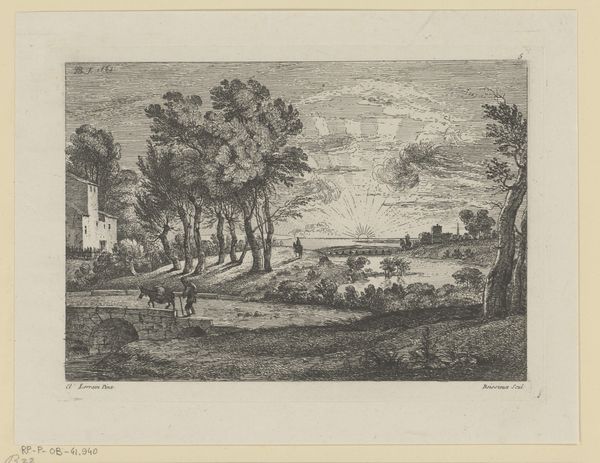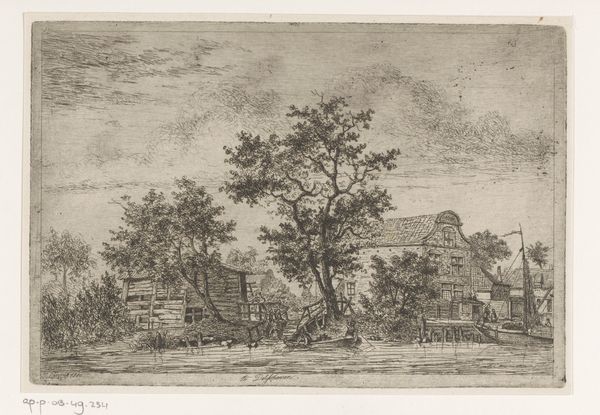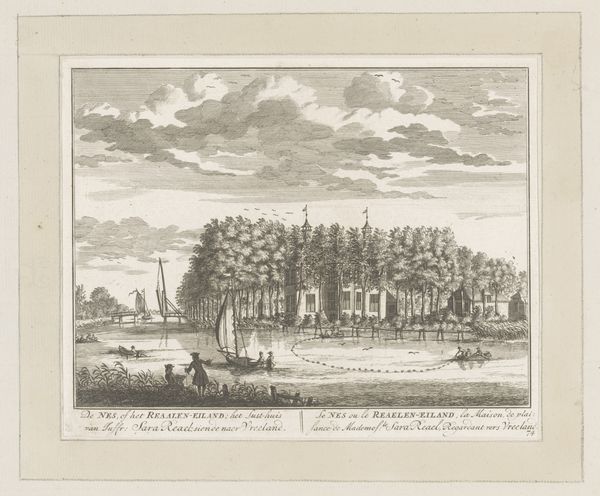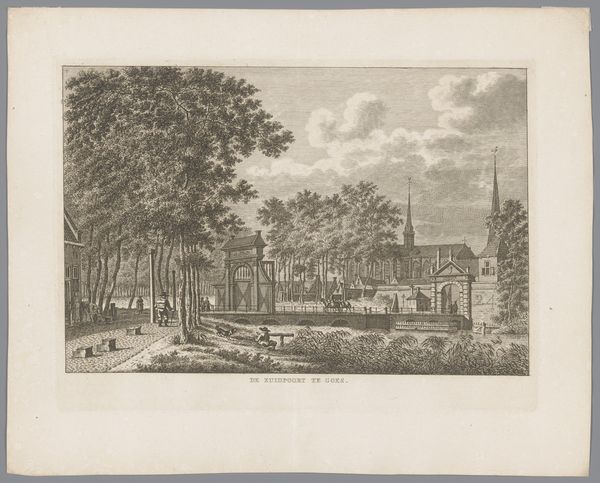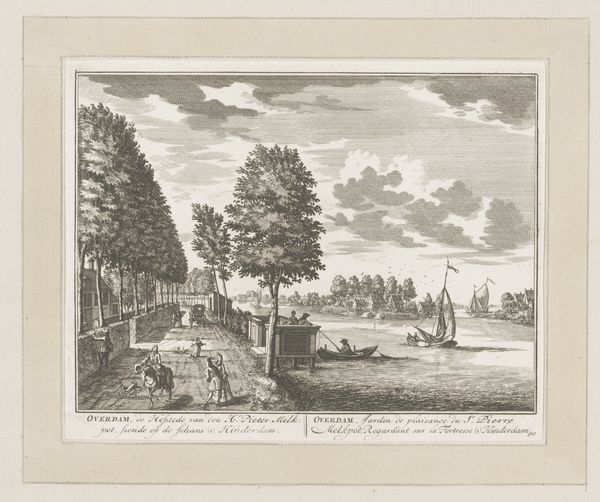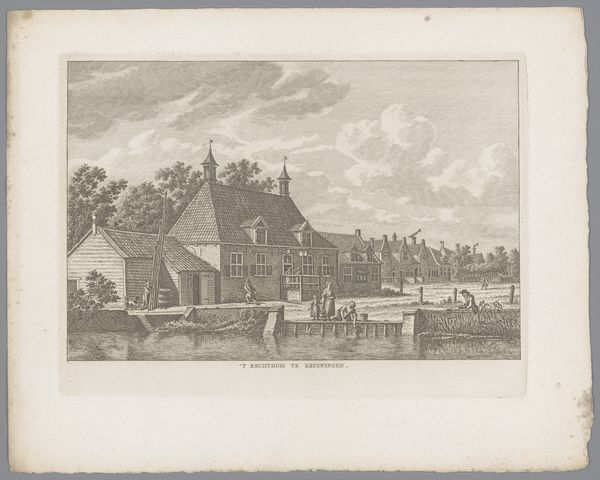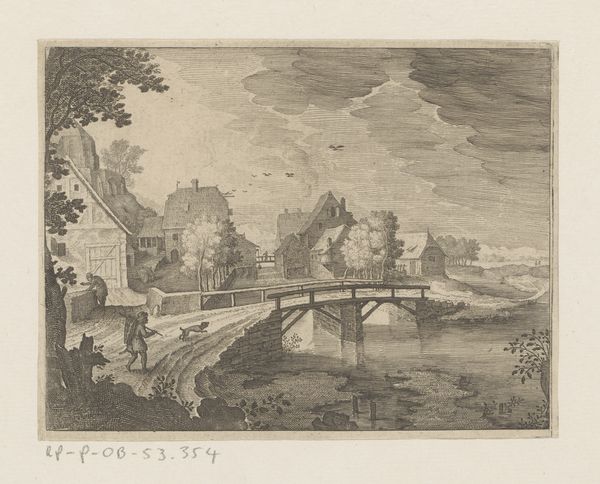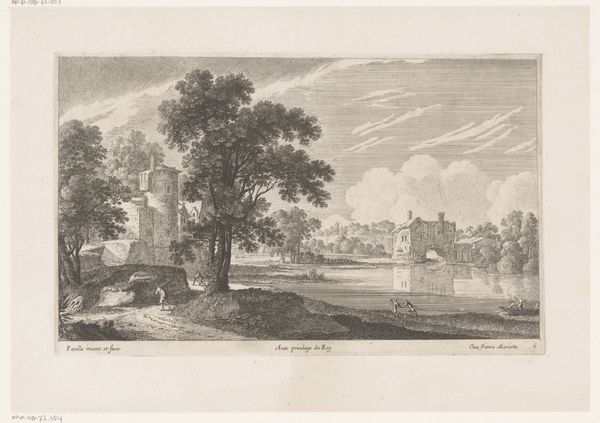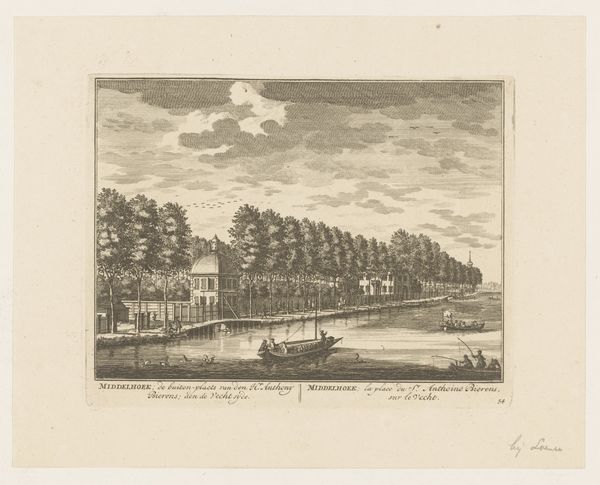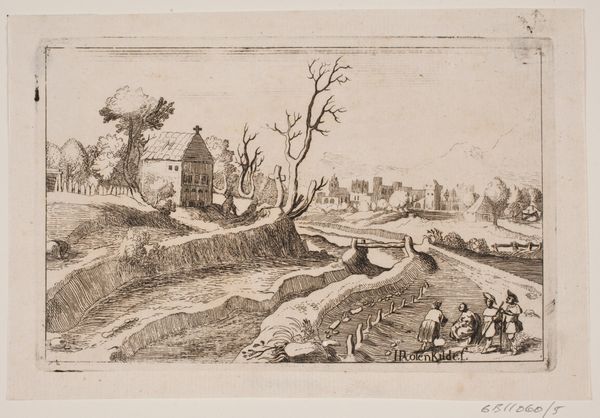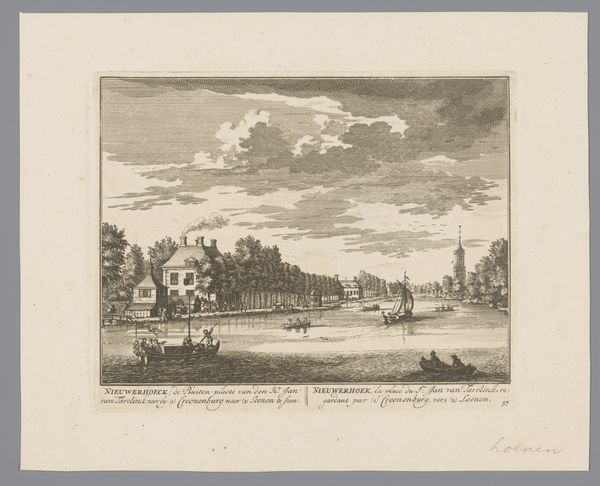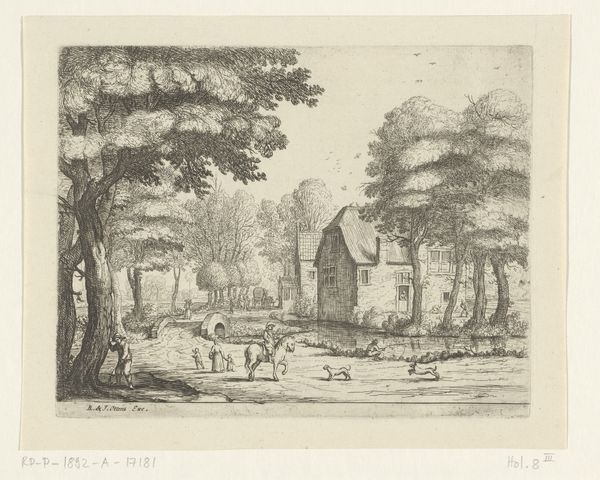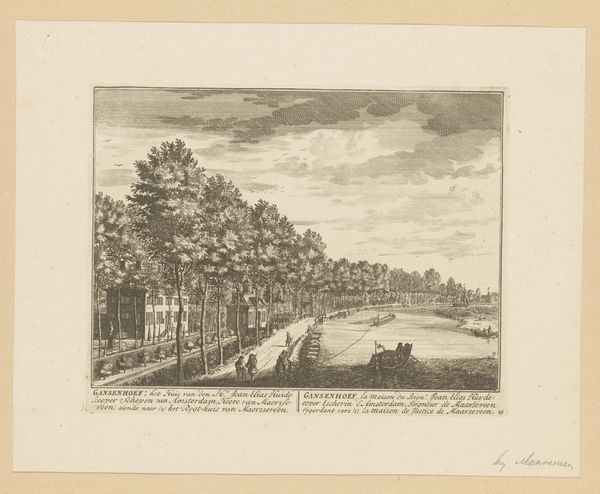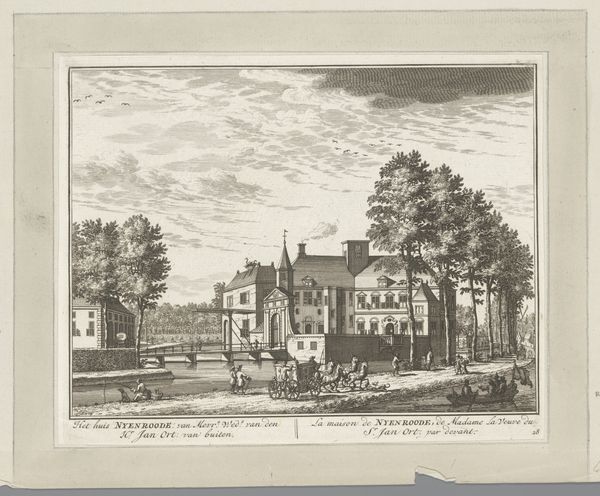
print, etching, engraving
# print
#
etching
#
etching
#
cityscape
#
history-painting
#
engraving
Dimensions: 228 mm (height) x 346 mm (width) (plademaal)
This print, depicting Frederik V's arrival to Frijsenborg, was made by Poul Isac Grønvold in the 1700s. It’s an etching, a printmaking technique that relies on acid to bite lines into a metal plate. The artist would have covered a copper plate with a waxy, acid-resistant ground, then scratched an image into it with a needle. When immersed in acid, the exposed lines would be etched into the metal. The deeper the bite, the more ink the line would hold, thus determining the contrast of the final print. The plate would then be inked and pressed onto paper. Here, the texture of the print is defined by delicate etched lines. This process speaks volumes about the society of the time. Printmaking was an essential tool for disseminating images and information, and this print immortalizes a moment of royal pageantry, broadcasting the King's visit to a wider audience. This kind of work involved skill, precision, and a highly specialized form of labor, combining craft, design, and materiality, which expands the boundaries of traditional art history.
Comments
No comments
Be the first to comment and join the conversation on the ultimate creative platform.
